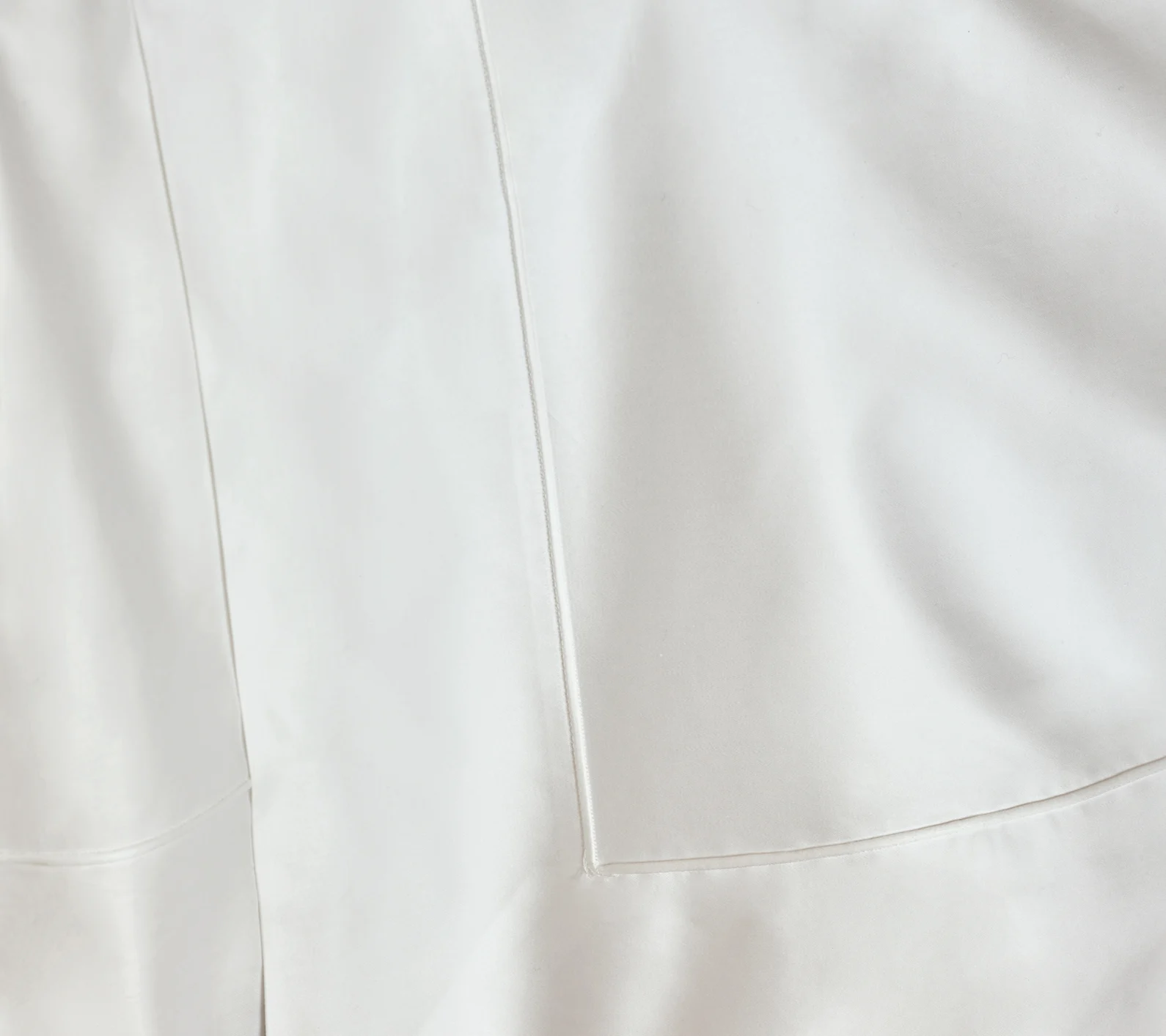
Start by Organizing and Loading Linens
- Seperate cotton linens by color and category: whites, light colors, dark colors, sheets, towels and table clothes.
- Avoid adding synthetic fiber items or clothing with potential fabric-damaging components (Zippers, Hooks, Metal Parts).
- Be sure to load unfolded items into the machine for proper washing.
Handle Delicate Items with Care
- Use a large, lightweight mesh laundry bag to protect delicate items with lace and embroidery.
- Wash pillowcases and duvet covers inside out to safeguard any emellishments.
Wash Wisely
- Use cold water for washing linens to prevent any shrinkage.
- Immediately remove linens from the machine after the cycle ends and shake to reduce wrinkles.

Our cotton is meticulously chosen to achieve the perfect combination of strength, softness, durability, and comfort. To maintain these desirable attributes, it is recommended to use a gentle biodegradable liquid detergent without bleach or brighteners. Avoid using powdered detergent or products containing alkali, and ensure the detergent is completely dissolved before coming into contact with the fabric. The amount of detergent required depends on the level of soil on the linens and the hardness of the water.

When using a machine dryer, avoid high temperatures. Opt for medium temperature settings and spin speed if adjustable. For bed linens, take them out before they are fully dry, lay flat on an ironing board, and iron gently. When line drying, shake out each item before hanging to prevent wrinkles. Avoid exposing clothing to direct sunlight, as this can cause colors to fade and white items to yellow.

To achieve optimal results when ironing cotton, utilize a steam iron set to a warm/high temperature. When ironing embroidered linens, ensure to iron the items on the reverse side while they are still slightly damp. It is recommended to refrain from using spray starch for best outcomes.

To preserve the crispness of ironed cotton garments, store them folded flat in a cool, dry, well-ventilated location. Avoid storing cotton items long-term in plastic bags or boxes, as natural fibers require proper air circulation. Additionally, prevent direct sunlight exposure to prevent yellowing. To maintain a fresh scent, consider storing cotton with a scented sachet
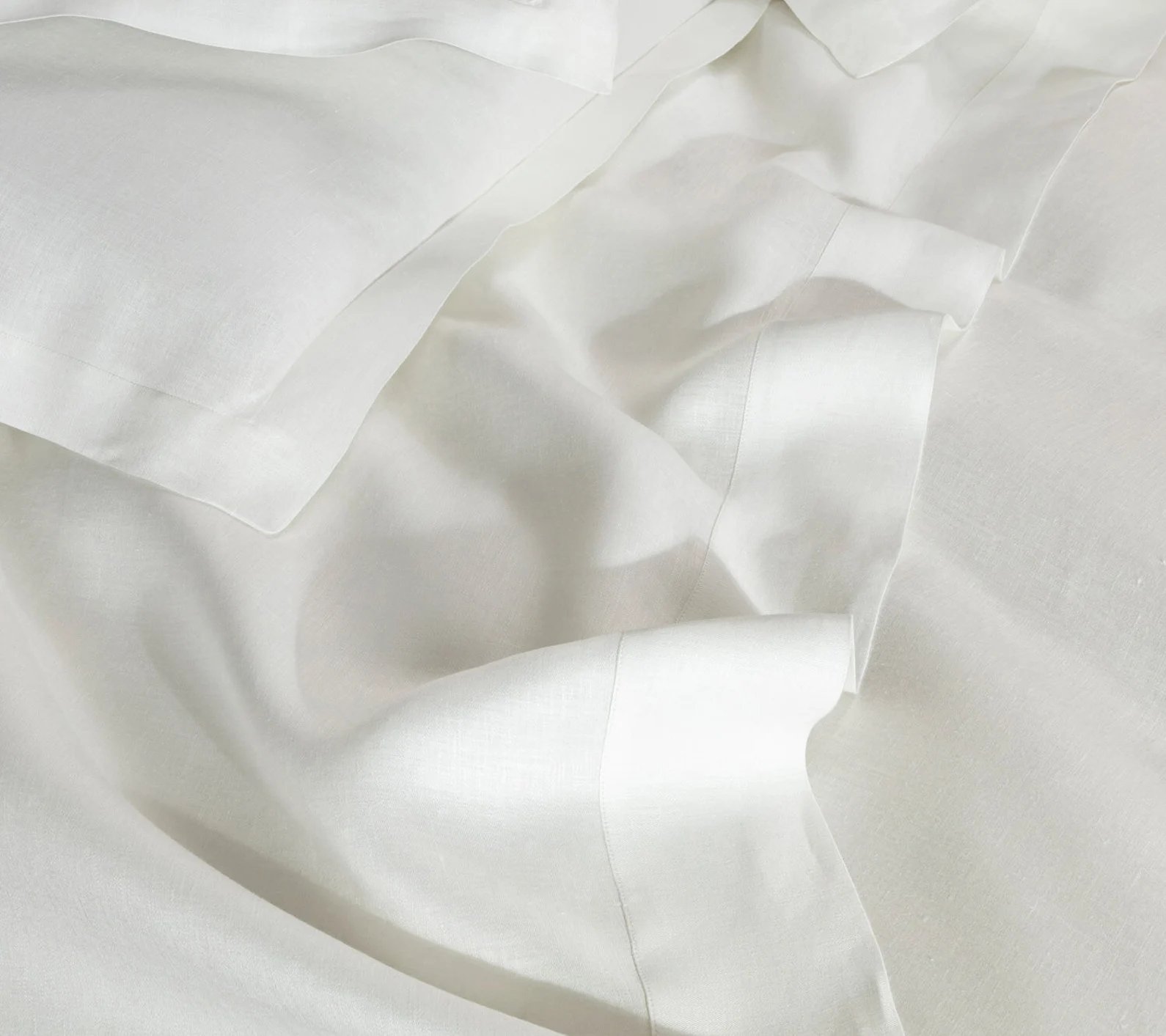
Prior to laundering, organize linens according to color (whites, light colors, dark colors)
and type (sheets, towels, tablecloths). Exclude any synthetic fabrics or garments
containing potential fabric-damaging components (zippers, hooks, metal parts).
Ensure that linens are unfolded when loading into the machine. For delicate items adorned with lace or embroidery, use a large, lightweight mesh
laundry bag for protection. Washing pillowcases and duvet covers inside out can help
safeguard embellishments during the wash cycle.
Opt for cold water when washing linens. Promptly remove items from the machine
once the wash cycle finishes, and gently shake them to reduce wrinkles.

Empyrean INTL carefully chooses their linen for a perfect blend of strength, softness, durability, and comfort. To maintain these characteristics, we recommend using a gentle, biodegradable liquid detergent without bleach or whitening agents. Avoid powdered detergents or those with alkali, ensuring the detergent is fully dissolved before washing. The amount of detergent required varies based on the level of soil on the linens and the hardness of the water.

To dry garments in a machine, it is important to avoid high temperatures. Utilize the low temperature fan and low spin speed settings for optimal results. Remove clothing from the dryer when still slightly damp and proceed to line dry. When line drying, be sure to open each item and gently shake it before hanging. Avoid exposing clothing to direct sunlight, as this can lead to color fading and yellowing of white garments.

When pressing linen, it is recommended to utilize a steam iron set to a warm or high temperature. For embroidered linens, it is advised to iron on the opposite side while the fabric is still slightly damp in order to achieve optimum results. It is best to refrain from using spray starch

To maintain the freshness and longevity of your linen, fold it neatly after ironing and store it in a cool, dry, and well-ventilated space. Avoid storing linen in plastic bags or boxes for extended periods as natural fibers require airflow. Keep your linens away from direct sunlight to prevent yellowing. To add a pleasant scent, consider storing them with a scented sachet
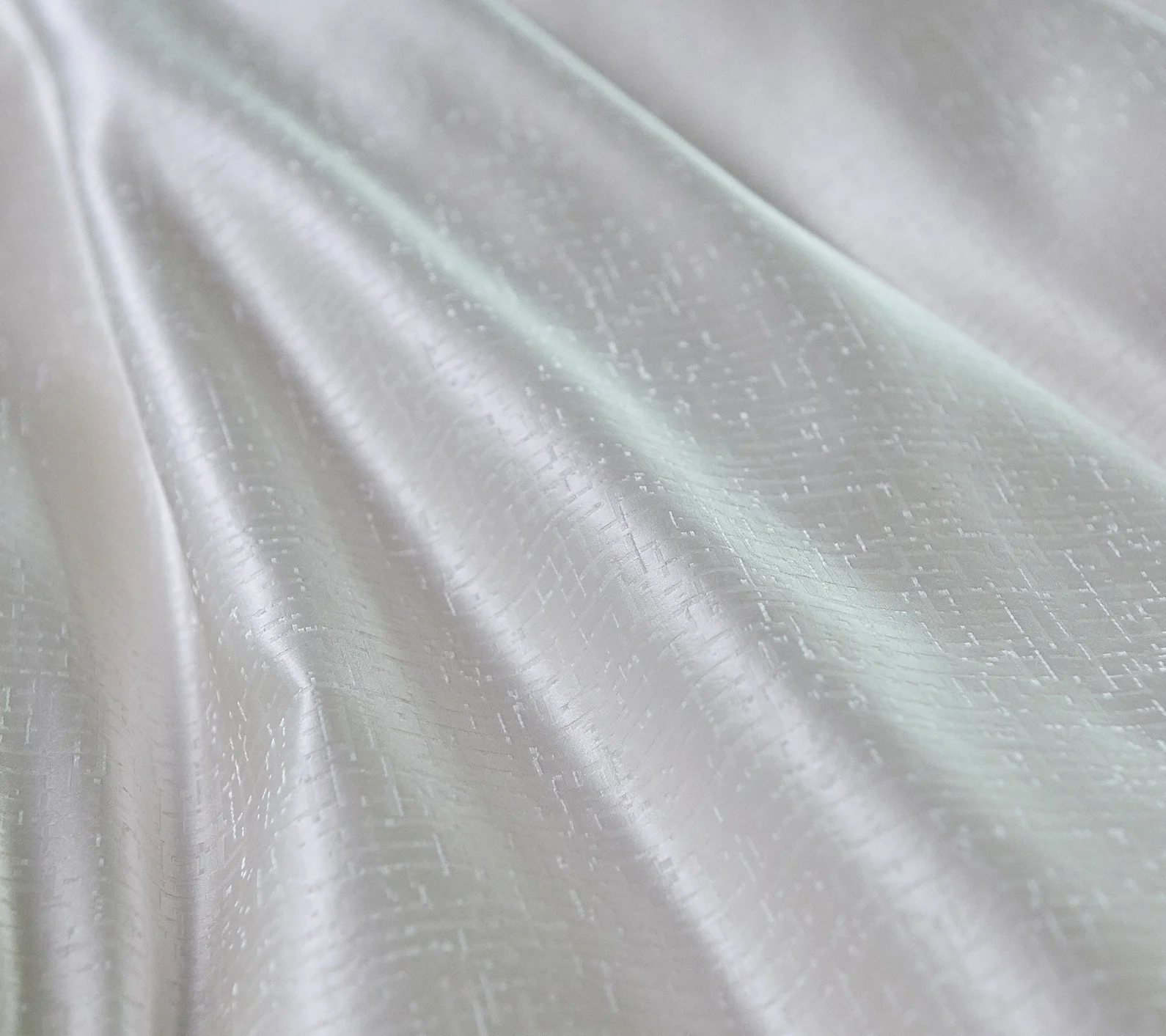
To safely iron silk fabric, it is recommended to use a steam iron set on a low heat setting. For linens with embellishments, iron them on the reverse side to avoid damaging the details. Avoid using spray starch as it could harm the fabric.

For optimal care of delicate fibres like silk, it is advisable to seek professional cleaning services. To prevent significant shrinkage in items like light quilts, bedspreads, and blankets, it is recommended to have them dry cleaned. It is important to select experienced dry cleaners who are knowledgeable in handling luxury linens and natural fibres.

To maintain the quality of silk, store it flat in a cool, dry, and well-ventilated space. Avoid storing silk long-term in plastic containers as natural fibers need air circulation. Keep silk away from direct sunlight to prevent yellowing. For a fresh scent, store silk with a scented sachet.
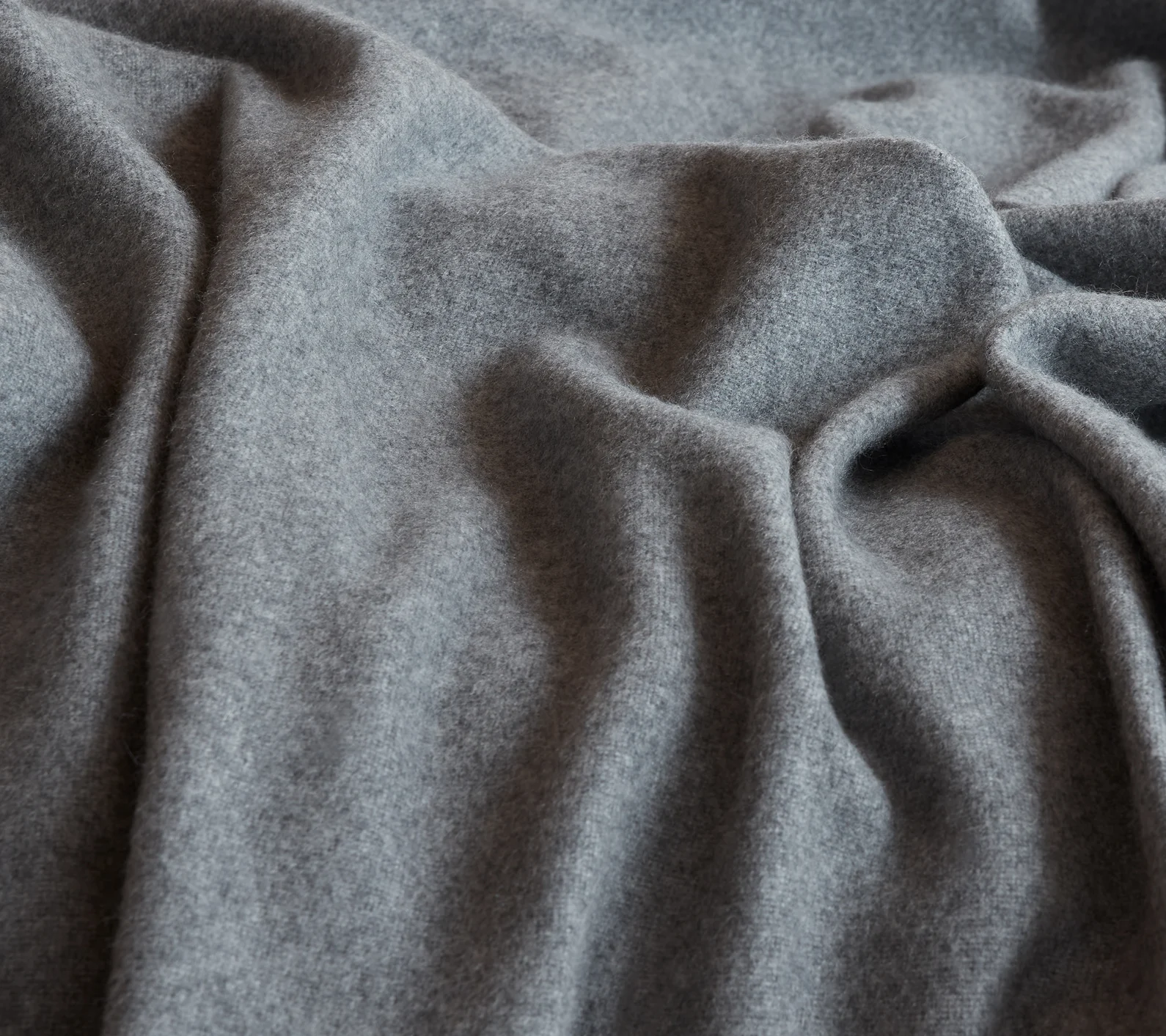
For maintaining the integrity of wool fibers, it is recommended to iron with a steam iron set on low heat. Avoid excessive ironing or leaving the iron in contact with the fabric for extended periods to prevent scorching. Place a piece of cotton between the iron and the wool to protect the fibers. Refrain from using spray starch to avoid damaging the fabric.

It is advisable to have delicate fibres like wool professionally cleaned. To prevent significant shrinkage in top-of-the-bed items like light quilts, bedspreads, and blankets, it is recommended to opt for dry cleaning. It is important to choose professional dry cleaners who are knowledgeable in handling luxury linens and natural fibres.

When storing wool, it is important to store it flat in a cool, dry, and well-ventilated space. Avoid storing wool in plastic bags or boxes for long periods, as natural fibers need to breathe. Additionally, ensure that the stored wool is kept away from direct sunlight to prevent permanent yellowing. To maintain a fresh scent, consider storing the wool with a scented sachet.
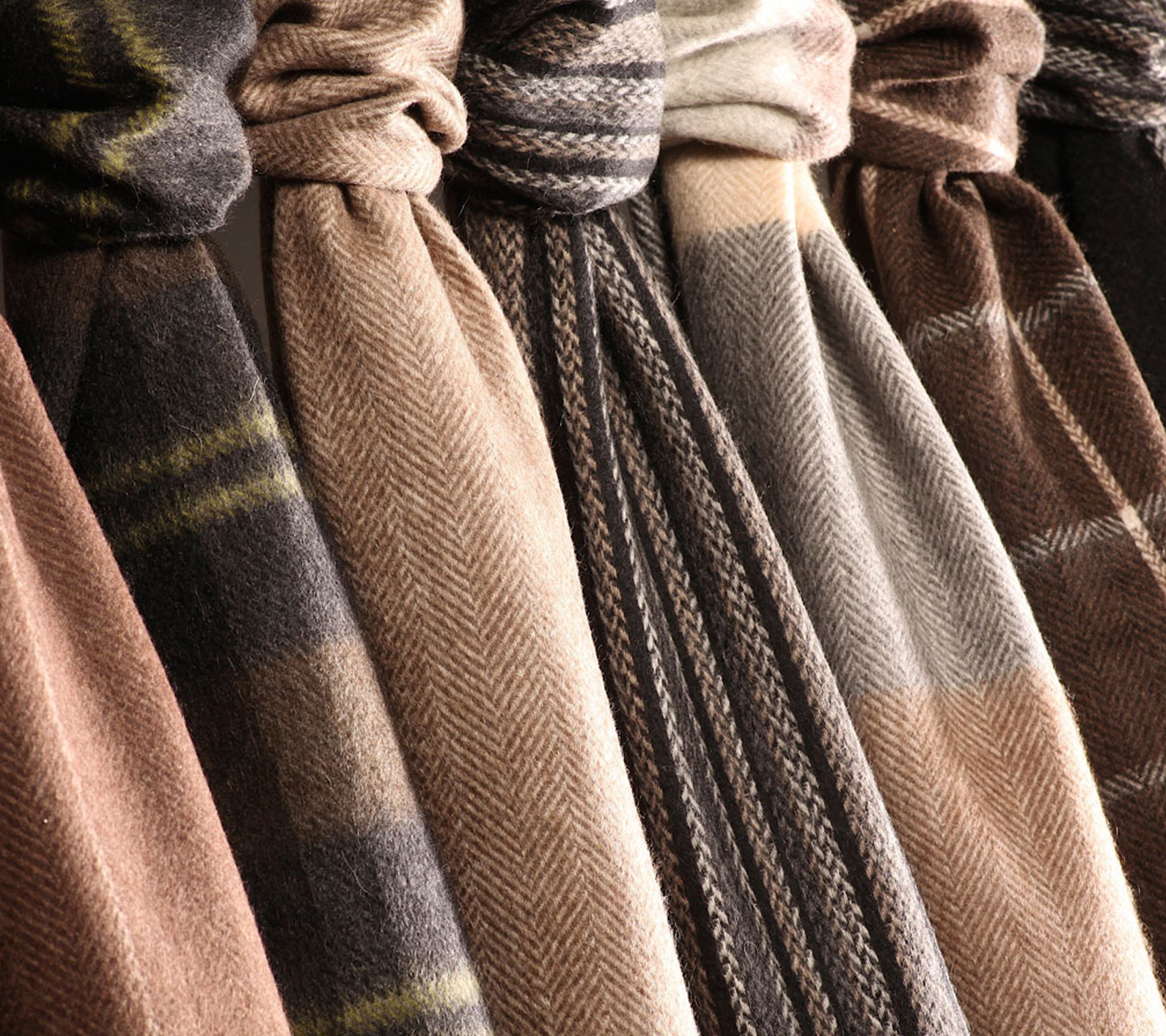
For delicate fibers, like cashmere, it is recommended to have them professionally cleaned. To prevent excessive shrinkage in lightweight bed linens, such as quilts, bedspreads, and blankets, it is best to opt for dry cleaning. Ensure you select experienced dry cleaners who specialize in luxury linens and natural fibers.

To properly store cashmere, it is recommended to keep it folded flat in a cool, dry, and well-ventilated space. Avoid storing cashmeres long-term in plastic bags or boxes as natural fibers require airflow. It is important to prevent stored cashmeres from being exposed to direct sunlight, as this can lead to permanent yellowing. For a refreshing scent, consider storing cashmeres with a scented sachet.
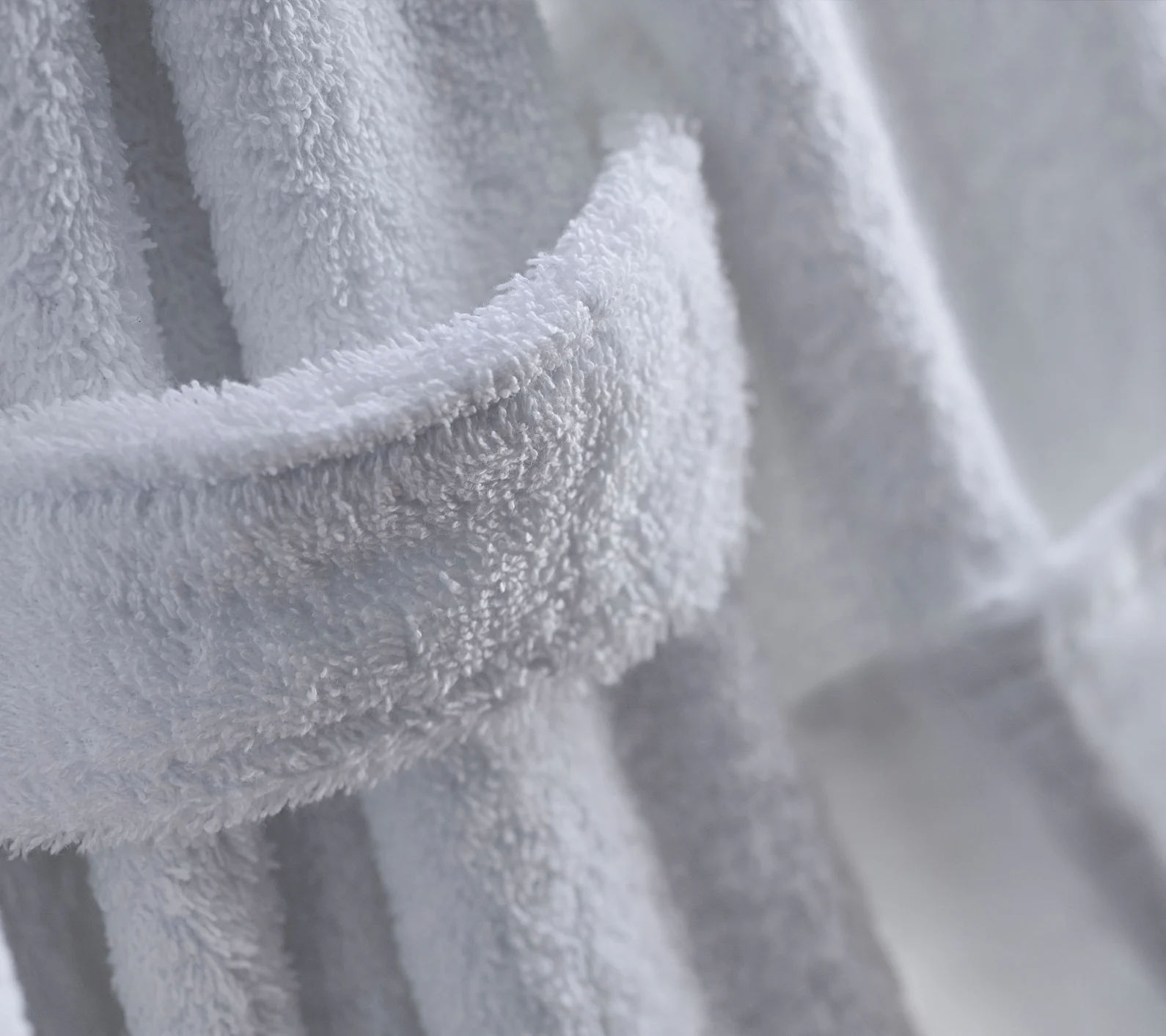
Start by Organizing Cotton Terry
Begin by organizing cotton terry into separate piles by color: whites, light colors, and dark colors. Exclude items made of synthetic fibers or garments with components that could potentially damage fabrics, such as zippers, hooks, or metal parts. Make sure all items are unfolded before loading them into the machine.
Handle Delicate Items with Care
Delicate items with lace and embroidery should be placed inside a large, lightweight mesh laundry bag for protection.
Follow Washing Instructions
Wash all cotton terry items in cold water to preserve their quality. Once the wash cycle is complete, promptly remove the linens and gently shake them out to minimize wrinkles.

Empyrean INTL's cotton terry is carefully chosen to strike a perfect harmony of durability, softness, lasting quality, and comfort. To maintain these attributes, opt for a gentle biodegradable liquid detergent without bleach or brighteners. Avoid powdered detergents or those with alkali, and ensure the detergent is completely dissolved before it comes into contact with the fabric. The quantity of detergent required varies based on the level of soiling on the linens and the hardness of the water.

Always use low temperature settings when machine drying clothing. Opt for the low temperature fan and low spin speed options. Remove items from the dryer before they are fully dry to prevent damage. Before line drying, carefully shake out each item and open it up. Avoid hanging articles in direct sunlight, as this can cause colors to fade and white fabrics to yellow.

For maintaining the softness and absorbency of towels, it is advised not to use an iron. To prevent wrinkles, it is recommended to take towels out of the dryer before they are completely dry, gently shake them, and then fold.

To maintain the quality of your cotton terry towels, store them folded flat in a cool, dry, and well-ventilated space. Avoid storing them long-term in plastic bags or boxes, as natural fibers require air circulation. Keep the towels away from direct sunlight to prevent yellowing. For a fresh scent, consider storing them with a scented sachet
